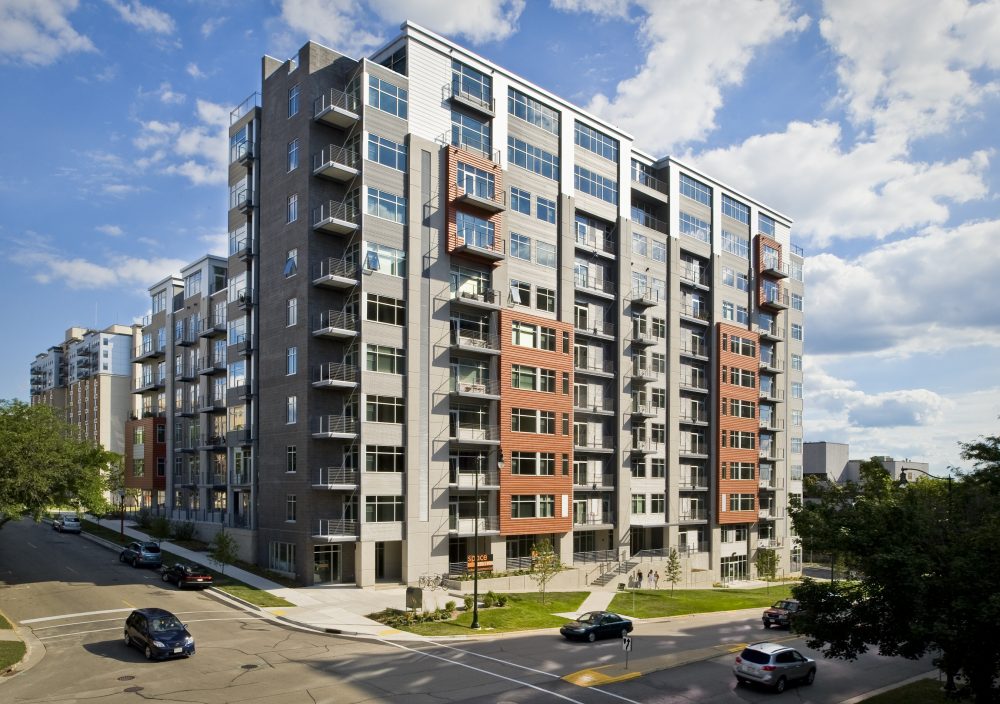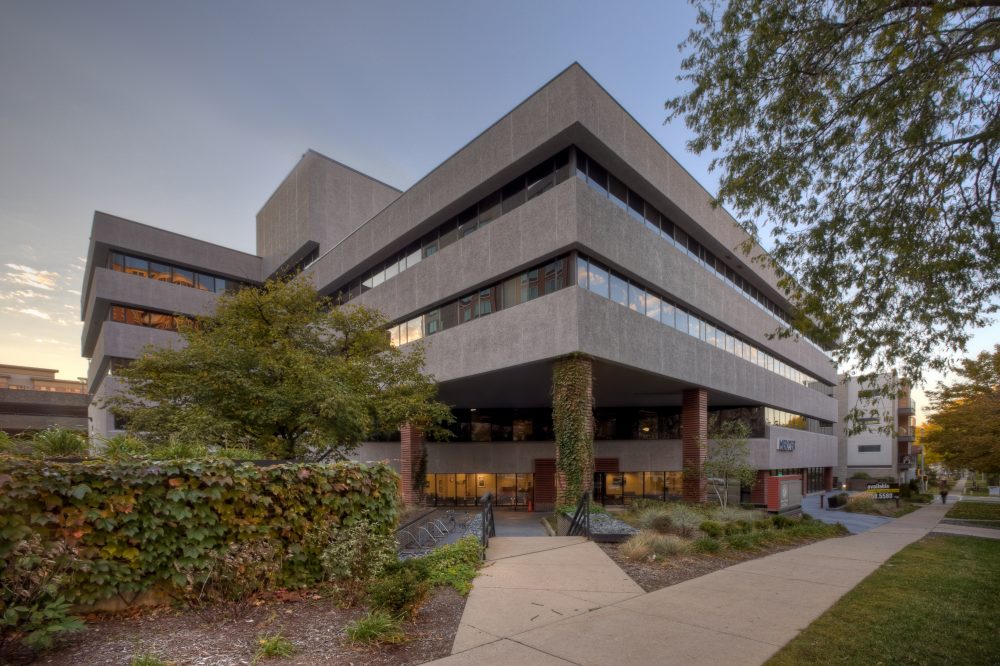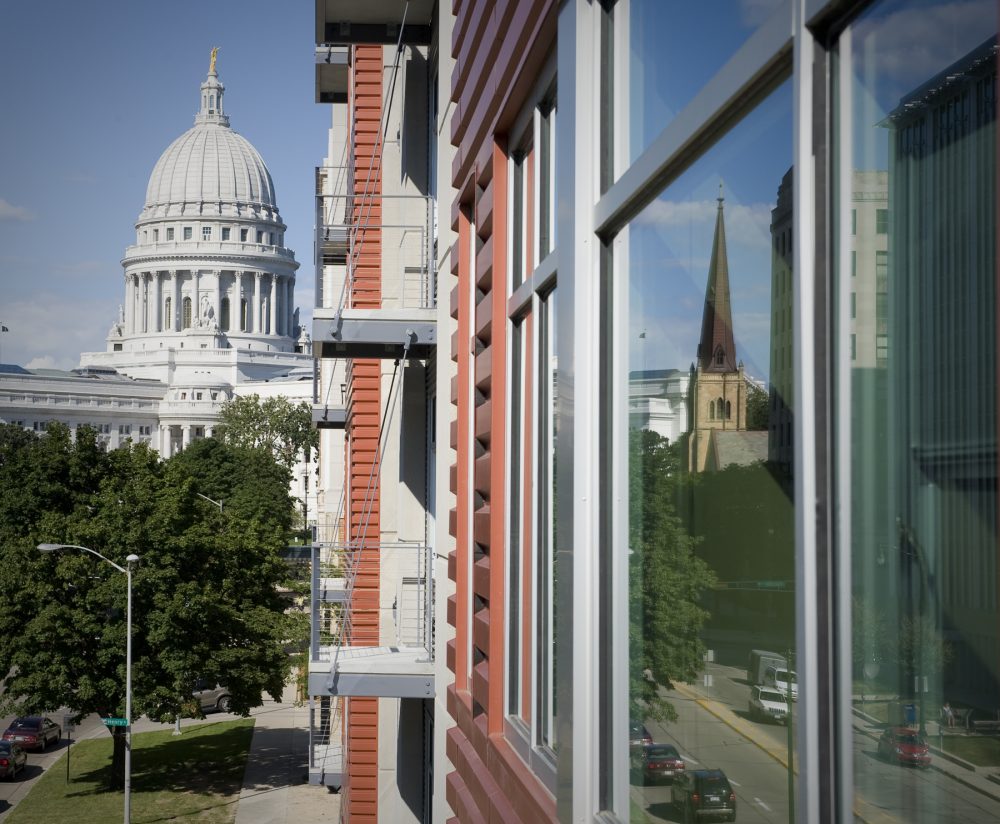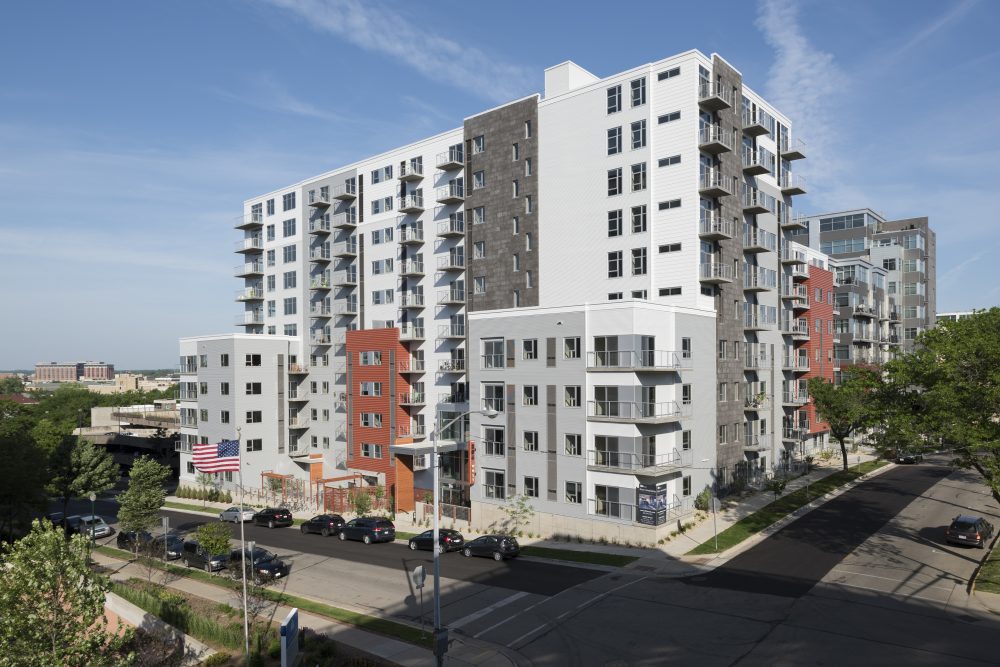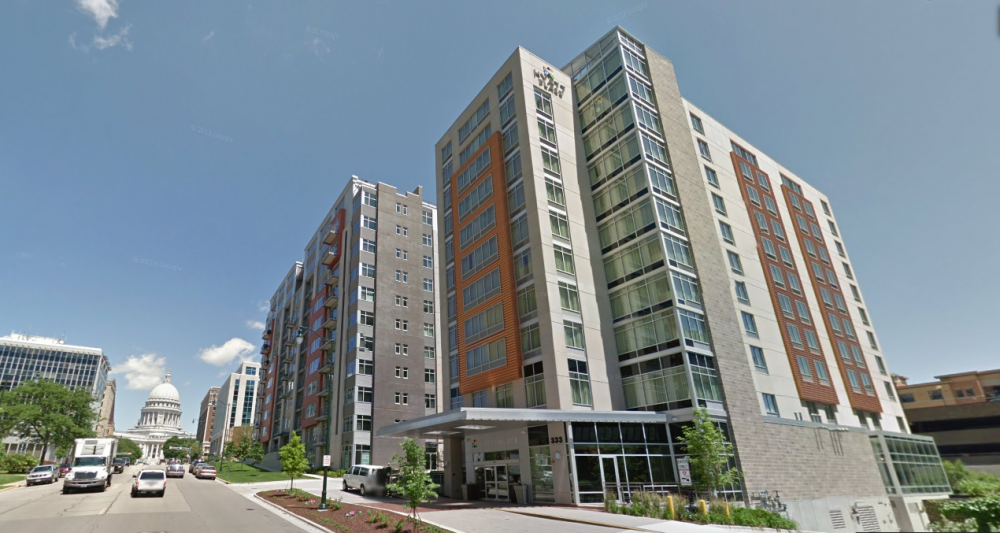The face of urban landscapes throughout the upper Midwest and Great Lakes regions has changed a lot over the past 60 years. Cities evolved from the densely packed networks of commercial districts in the days of street trolleys, to the migration to the suburbs and the corresponding decay of the inner cities, coming full circle back to today’s renewed interest in urban living. As a result, design and construction companies have begun purchasing and redeveloping urban buildings and abandoned brownfields. The Alexander Co., based in Madison, is one such company and is doing its part to revive urban areas.
“Our company was founded in 1982 by my father, Randy Alexander, who was a drywall tradesman,” says Joe Alexander, the company’s president. “He bought a beat-up house, fixed it up and sold it. It’s grown from there. Our projects increased in size and number throughout the ’80s and ’90s, and we’ve expanded to other states.”
The Alexander Co.’s resume now includes projects as far south as Texas and as far east as Maryland and Virginia — although most of the company’s work is contained in Wisconsin and the Midwest.
To grow the way The Alexander Co. has requires a comprehensive approach to reclaiming urban space. Whatever the project needs, Alexander wants his company to be able to bring it to the table.
“We are a soup-to-nuts development company,” Alexander says. “We begin with project pro formas, then provide in-house design and construction expertise. That’s how we control both risk and quality, by having all of those talents together in one room.”
CREATING THE VISION
The Alexander Co. is often invited by the leaders of a community to take the lead on a project. It could be a historical building ripe for repurposing, or a vacant space in need of new development. In all cases, Alexander and his team have to be ready to move quickly, developing a vision, then a plan, and then turning that plan into reality.
“Our area of specialty is the really challenging projects that other developers might not want to take on,” Alexander says. “Brownfields, blighted areas and buildings that, for one reason or another, are kind of unusual and maybe aren’t attractive to other developers because they aren’t sure how to utilize the space.”
The Alexander Co.’s design experts are frequently tasked with reimagining old building stock as repurposed residential space. Over the years, the company has redeveloped old schools, courthouses and office buildings into high-end apartment and condominium residences.
To Alexander and his staff, an old building or vacant lot is a blank canvas, full of potential. It’s up to them to realize that potential by not assigning predetermined limits to what a property can or cannot become.
Creativity and open-ended dialogue are essential elements in the process, and Alexander wants to continually stimulate that mindset within the walls of the company. By having a culture that promotes free thought, entrepreneurship and creativity, those qualities will come through in the visioning, design and execution of projects.
“We’re very entrepreneurial in how we do business,” Alexander says. “We don’t have a corporate environment at all. We want creative people, and we want them to utilize that creativity to the fullest. I think that’s why we keep our people for so long. We don’t put a lot of constraints on their thinking or their creative process.”
This freedom keeps employees engaged with the company and their work.
“They find it exciting and interesting,”
Alexander says. “They get to preserve a piece of history and help revitalize important neighborhoods, instead of putting down another building next to a shopping mall.”
MOMENTUM IN MADISON
Madison, Wisconsin, is known to most of the rest of the nation as the home of the University of Wisconsin, but it’s far more than a college town. It’s the state capital, the second-largest city in the state and home to a cityscape all its own.
Madison is among the mid-sized cities trying to reinvigorate its downtown, which is why government entities and private activists have been advocating for new downtown building projects in recent decades.
As a local firm, The Alexander Co. is particularly passionate about Madison’s revitalization, so when the opportunity came to use prime downtown real estate for a new 13-story luxury apartment complex, Alexander and his team jumped at the chance.
“It’s really exciting,” Alexander says. “It’s the final phase of a full-block master plan that The Alexander Co. started in 2005. It includes 150 condominiums, 70,000 square feet of office space, and soon the apartment units will be completed. It really has been a massive undertaking by all involved, painting the canvas of an entire city block like this.”
Alexander views the apartment project, named “306 West,” as a particularly important project in his company’s portfolio, not just because it’s a hometown project, but because 306 West’s location will make it an integral part of the fabric in a revitalized downtown Madison.
“If you look at it as an urban infill project, it’s important to the immediate surrounding area to have these residences,” Alexander says. “The site has good access to walking, bike paths and urban open spaces. It’s within five blocks of some of the best restaurants in the Midwest, two blocks from the Capitol Square and within blocks of the University of Wisconsin campus. It’s completely new construction in an area that will really benefit from it.”
Alexander anticipated having 50 percent of the units pre-leased in time for the summer move-in date.
“Once we have this property completely built and leased, it’s going to close the loop on a 10-year effort that involved a lot of people and a lot of talents, and not just from us. We’ve had a lot of partners with us on this project, and we’re very appreciative of the work that every single one of them has done.”
FINANCIAL BACKING
FirstMerit Bank has been one of the principal partners with The Alexander Co. on the construction of 306 West. Like Alexander and his team, the bank’s regional leaders saw the potential of the property and were eager to come up with a funding solution that would make it all happen.
When the 306 West project was getting off the ground in 2013, FirstMerit was entering the Wisconsin market and looking to make an immediate positive impact. Alexander’s team and the team at FirstMerit were introduced through a mutual acquaintance and began an immediate dialogue.
Alexander says the process moved quickly because of the aligned goals of both parties.
“We began discussions with FirstMerit in summer 2013 and closed the project in December 2013,” he says. “We initially worked with the FirstMerit group out of Chicago. They came to Madison, saw the project and talked about our experience in the urban redevelopment space. Very quickly, I think both organizations recognized and developed a respect for each other’s positions in the marketplace. It meant a lot to us.”
That mutual respect was due, in large part, to FirstMerit’s willingness to get to know The Alexander Co. The bank’s regional leaders, first in Illinois and then in Wisconsin, saw the value of a design and construction firm focused on the revitalization and repurposing of vacant urban properties. While other developers are still
looking outward to the undeveloped countryside woven into outer-ring suburbs, The Alexander Co. was going in the opposite direction, trying to breathe new life into an already existing urban infrastructure.
“They’re smart bankers,” Alexander says. “They know how to wrap their heads around a new project very quickly. And they can grasp the larger-scale picture of what we’re trying to do as a company. That’s why we were able to come to a financing agreement on the Madison property so quickly, and why we’ve been able to move from there to welcoming the first residents 18 months later.”
FUTURE GROWTH
The Alexander Co. and FirstMerit share a common set of core values, deeply rooted in the value of relationships as an essential ingredient in good business practices. Strong client relationships have always been important to Alexander and his team — they’ve helped his company weather difficult times, and they will help him build his company’s future. By maintaining strong relationships, the firm retains a deep sense of loyalty with government entities, lenders and investors.
“It’s pretty much the only way we got through the recession back in 2008 and 2009,” Alexander says. “The residential real estate market slowed down to a crawl while everyone waited out the recession, and we survived due to the great relationships we had built with lenders and investors. People stuck with us, and we emerged just fine.”
The key, as it pertains to the firm’s future, is to develop and maintain those relationships across a wide range of potential clients — a strategy aimed at ensuring that the company doesn’t get too attached to one market in the urban residential development field, a massive space that includes rental properties, condominiums, renovated existing structures and new construction, all of which could be located in any number of settings.
“You’re always trying to watch and trying to anticipate trends,” Alexander says. “You watch the number and type of projects under development in a community, so that when community leaders come to you and ask you to help with a project, you can design something that’s singular and unique, something that’s set apart, that will stand out to potential owners or tenants.”
As a part of the market research, Alexander and his team have to understand the spending capacity of a given community. Rental and purchase prices have to hit a sweet spot, high enough to turn a profit but low enough to draw interest.
“We have to look at recent and long-term sales and rental history,” Alexander says. “That means taking a look at the rental rate, sales rate and construction rate for the immediate neighborhood, and for the community as a whole, and relying on third-party expertise, including market studies and market overviews. That way, we make sure we’re designing something that will hit that sweet spot.”
Experience is a great teacher in that regard, and it’s something that Alexander continues to value, both from partners such as FirstMerit and from his own staff.
“We have a staff of about 35 at the home office, and about 30 more at the outlying properties that we manage,” Alexander says. “There are a lot of advantages to having a staff that has been together for a while. People know each other, they like each other, so there’s that sense of camaraderie. We work well together. And those who have a lot of experience have gained a fair level of expertise in how to analyze a market and what it needs as far as new properties.
“They can offer that experience to our clients and pass that knowledge on to the people who haven’t worked here as long. It’s a great setup, one that I think differentiates us in the marketplace.”

